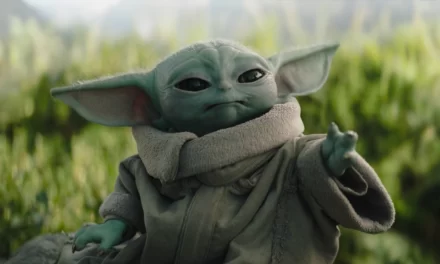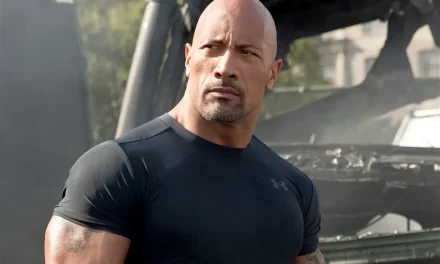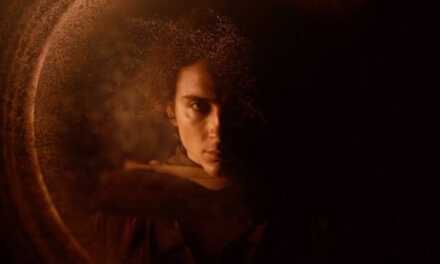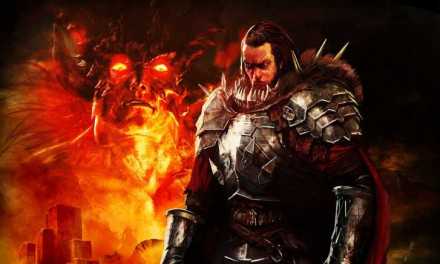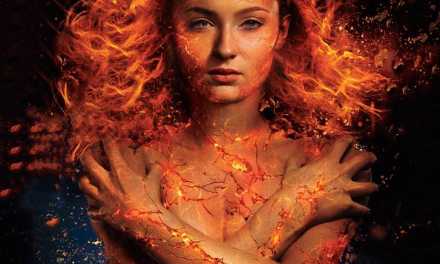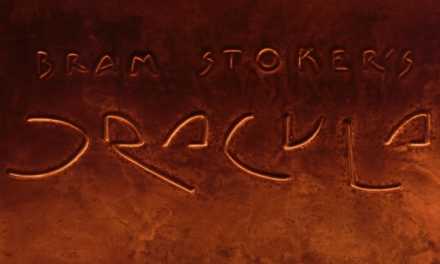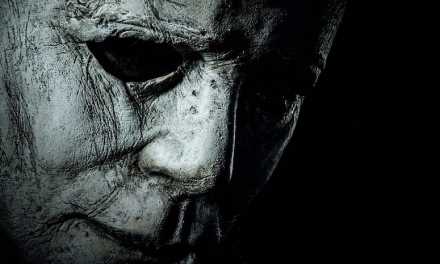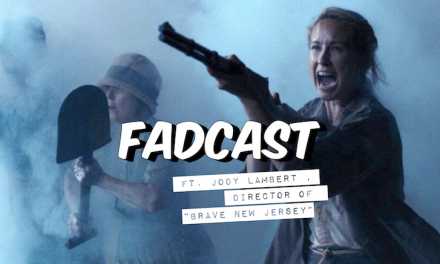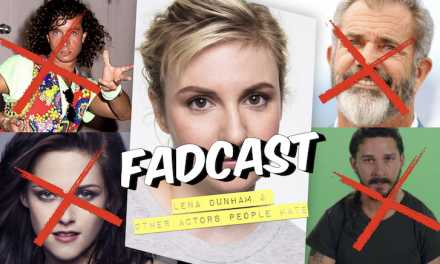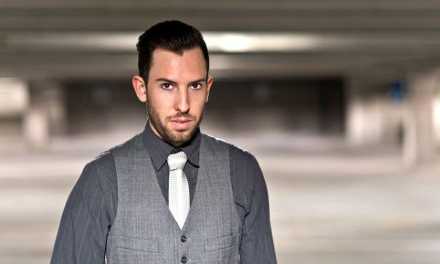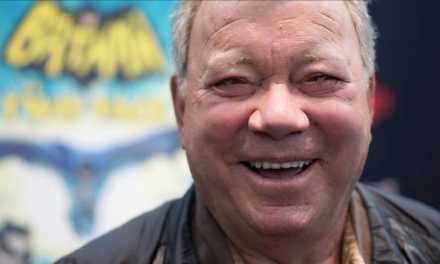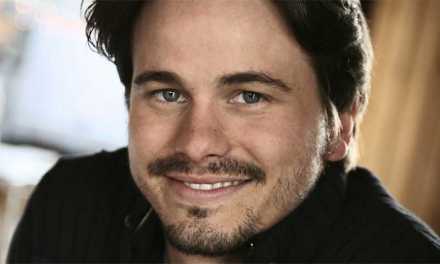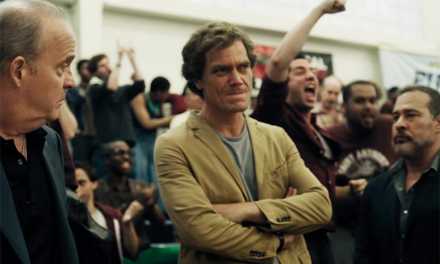
Exclusive: Joshua Butler Talks Vampire Diaries To Syfy’s The Magicians
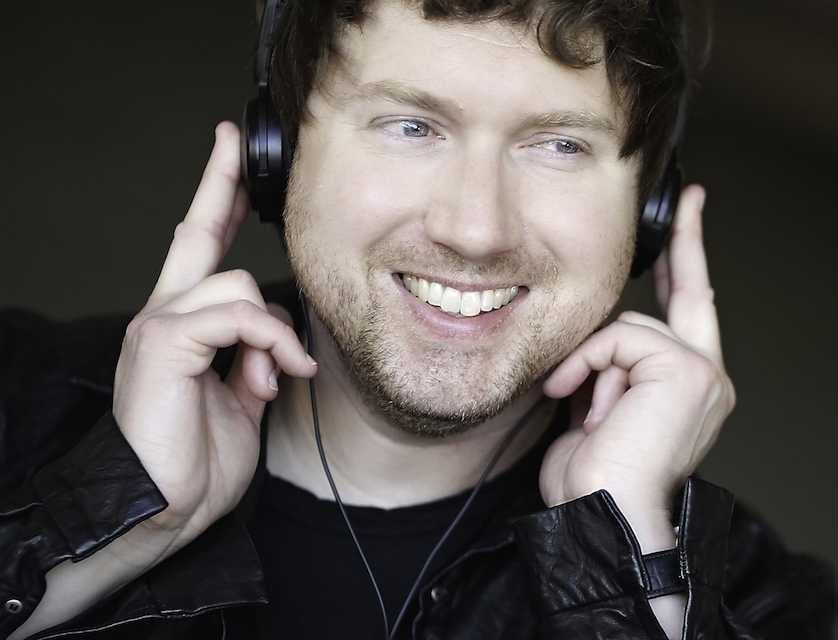
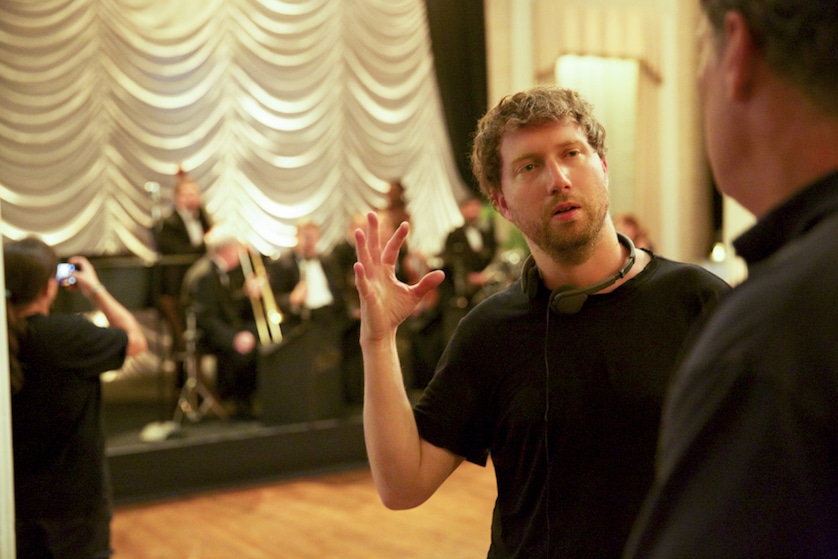
“Deep Waters” — Behind the scenes on the set of the CBS drama “RECKLESS.” Pictured: Director Joshua Butler. (Photo by Jackson Lee Davis/CBS via Getty Images)
Director Joshua Butler talks about the modern TV model, biting into a recent multi episode run with “The Vampire Diaries” and his work on the mystical Syfy series “The Magicians.”
In a FilmFad.com exclusive interview, Pooya converses with Joshua Butler about his love for directing, his experiences working on some of America’s top televison shows, the changing face of the small screen and just how features and television compare and contrastin todays entertainment market.
So, without further ado, here is an abridged glimpse of director Joshua Butler’s small screen escapades past, present and future.
Film Fad (Pooya):
How’s it going Joshua?
Joshua Butler:
Hey Pooya, how are you man?
Film Fad (Pooya):
Doing very well. So I’m going to go ahead and jump in, but before I get started… What are 3 words you’d use to best describe yourself as a director.
Joshua Butler:
Wow, that’s a good one. Let’s see… maybe I’ll make it alliterative. Epic. Emotional. Entertaining. How about that?
Film Fad (Pooya):
Those are ‘Excellent.’
Joshua Butler:
Hey!
[Both Laughing]
Film Fad (Pooya):
Well, I’m going to go ahead and jump into the meat and potatoes of this, but I like that description. That’s definitely a high selling point.
Joshua Butler
Now I have an answer to that question for the future. It’s putting me on the spot, but alliteration is always a winner. You can’t argue with alliteration.
Film Fad (Pooya):
No, you can’t. No, you cannot. The classics always work.
Joshua Butler:
Exactly.
[Both Chuckling]
Film Fad (Pooya):
You have had the opportunity to work on some highly popular Television shows, including “Pretty Little Liars,” a multi-episode stint with The Following and most recently a multi-episode run with “The Vampire Diaries.” Which of these projects has been your favorite experience so far?
Joshua Butler:
Of those projects, which were all very enjoyable… I mean The Vampire Diaries has been something that I’ve been doing off and on for, I guess, 6 years. It’s something that I was able to join the creative team very early in the 1st season. It’s kind of like watching kids grow up. You just sorta watch as these vampires, well I guess they don’t really grow up. I guess in theory they stay the same for the rest of time, but the creative evolution of that show. Who ended up falling madly in love with whom? Who ended up dying? Who ended up coming back to life and who ended up dying again, you know? There’s so much going on in that show that it’s never dull. It’s fun to revisit that world as a filmmaker and put my heart and soul into a story that’s part of a bigger picture that’s become so iconic, especially on social media.
Film Fad (Pooya):
You said something that piqued my interest. Being that you’ve been involved for so long, how is it watching the show 1) as a director observing the work and 2) as a fan of the show, the acting and the story? Are you able to separate yourself, or do you always see the seams because of your behind the scenes involvement?
Joshua Butler:
I think that’s a professional hazard for any person that’s passionate about what they do in life. I can’t imagine people who work in hospitals everyday go home and turn on a show about a hospital. I don’t know, maybe they do. It’s not just “The Vampire Diaries.” It’s unfortunately extended to all television programming, where my work brain doesn’t really get turned off when I sit down and watch things that I’m not involved with. Directing an hour of episodic television, or really 42 minutes… I heard somebody describe my job as creating 42 minutes of filler, because really the important thing is the 18 minutes of commercials that are really paying the bills. In terms of an hour of television, or 42 minutes of content, for me it’s basically a one month commitment. I’m hired and effectively I have a week and a half to prep the episode, a week and a half or 2 weeks to shoot it, and then another week where I work with the editor before it goes to producers, the studio and the network. I’m spending an entire month thinking about one episode of television and breaking it down into it’s very finest of parts. Figuring out how to make it work moment by moment, objective by objective or nuance by nuance. That way of thinking extends to my viewing habits. So, I sit down and I feel like I’m in work mode because I watch shows that I didn’t direct and I do in fact, like you said, see the seams and I see the tricks that were used to make the show work. So for me, I love to just get out and to a movie theatre because it feels different than the TV viewing experience. So hopefully movie theaters stay around for a while, because that’s where I feel I’m able to turn off my work brain.
I’m also influenced by Stanley Kubrick and Woody Allen. – Joshua Butler
Film Fad (Pooya):
With such a TV heavy resume, do you see yourself fully stepping into features anytime soon, I know you’ve done a couple, or are you comfortable sticking to the Television format?
Joshua Butler:
Well, it’s very interesting. I come out the generation of filmmakers that were inspired by the George Lucases and Francis Ford Coppolas and the Stephen Spielbergs of the 70’s and early to mid 80s. There were so many iconic films. I’m also influenced by Stanley Kubrick and Woody Allen. Those were filmmakers who spoke to me beyond the multiplex crowds. The big films were big for me too, “Star Wars” and “Raiders of the Lost Arc,” etc. Maybe now there’s a new generation of people that grow up and say “I wanna be a television director,” but for me it was always wanting to be a filmmaker. At the time, film was the Holy Grail and TV was considered, I think, a lesser medium. So, when I went to film school I genuinely wanted to be directing films. I still do see myself directing films. I’m actually working on one right now. I’m putting together a film with some producers who produced a short film I directed last year. I do see myself in fIlm and in television, in both mediums. When I graduated from film school, I basically got my directing break in TV. As I’ve been working in TV a lot, the attitude in television shifted almost completely because suddenly feature film directors were wanting to do TV. And TV itself, the viewership obviously went up a lot. Now everyone’s doing Netflix and Chill and catching up on their favorite shows. It seems like the movie going experiences has almost been replaced in a lot of households by the TV watching experience. TV is just bigger and better than ever. It’s looking better, it’s sounding better. In fact, a lot of great television rivals most feature films that are released in terms of quality. For me it’s been a very interesting kind of journey. I’ve been doing the same, you know working TV, but TV around me is getting more and more polished. It’s an exciting place to work.
Film Fad (Pooya):
So, you kind of touched on this a little bit. There is definitely a lot of crossover for directors, like you said, going from feature film to television and vice versa. For you, how does the approach to directing a television show versus a feature film stack against one another? Would you employ the same methodology or is there a different mindset you would have to take on?
Joshua Butler:
That’s an excellent question. I think that your basic storytelling skills are the same. Obviously, I feel like the same basic filmmaking principles are at work. The best story telling, I think, goes across mediums. You can tell a story by a campfire. You can create a novel, painting, comic strip. It’s all storytelling. In terms of the difference between TV and film, I think there is very little difference other than time and money. It really does come down to time and money. In television, you’re asked to basically create 42 minutes of content in a fraction of the time for studio budgeted feature films. They are shooting one or two pages of script a day, TV directors are asked to shoot 6,7,8 pages a day. As you know, that sort of translates into one minute of screen time. In features you get to really really dive in and create, get a lot more angles, spend more time on nuance. Something that’s worked on very intensely, and that turns into one minute of screen time. Say you have a day to do one minute of film, you’re using the same exact skill set to create 6,7,8 minutes of content for TV. So, it’s a challenge. In some ways it’s 6 or 7 or 8 times harder to direct television because you are asked to create the same aesthetic. At least in modern television, they’re asking you to make it look like a feature film, sound like a feature film. The studios are expecting that quality level. And to create it you basically have to take a day, which is usually 12 hours of shooting time, and figure how to create that much content and make it feel and look as good as you possibly can. So a lot of it, I think, comes down to mathematics. I think the mathematics of film and television are very different, but the storytelling is the same. You just have to be clever about how you shoot it.
Film Fad (Pooya):
That’s very interesting. I can see the amount of time given to a feature film allows for the effort to be put in. And I guess the budget always helps.
Joshua Butler:
Yeah, no it does. But then again, that’s the interesting thing. It’s like TV schedules and budgets were created back in the days of courtroom dramas, cop procedurals and shows set in hospitals. There’s a reason those are a standard genres in television, because it’s very efficient to shoot, on a TV schedule and budget, five people in a courtroom or six people in a hospital. They’re people talking. People talking is usually the fastest thing to shoot in television. For example, if I have a six page day and I have to shoot an action sequence, usually what ends up happening is you shoot four and a half pages of dialogue. You shoot that very very quickly in just a few hours so that you can spend all your time on the action scene because stunts, special effects and visual effects that inevitably take the longest to set up. Of course, they result in the least amount of screen time. The ambition level has changed dramatically in the last few years. I just directed a show “Limitless” for CBS. They wanted it to look and feel like a movie that was made for 100 million dollars. They want to be able to create that same feeling on a TV schedule that was initially designed by the producers and directors who were making those early Steven Bochco and David Kelly shows. So, It’s fitting the new feature film aesthetic in the old TV model. It’s an interesting and challenging thing to accomplish.
Film Fad (Pooya):
Looking at 2016, You’re working on a new SyFy Channel series that has been generating a good amount of Buzz entitled the Magicians. What can you tell us about that project? Was this a one episode deal? Do you see yourself picking up a few more down the road, or is not the far along yet?
Joshua Butler:
It’s not quite that far along yet. Although they just did get picked up for a second season and I’d love to do more. So definitely that’s very very possible this year I’ll being doing some more of those. I had a great experience on the show that I directed. It’s a truly unique show in so many ways. People are calling it the adult “Harry Potter,” but I think it’s way more than that. When I first read it, it felt more like “Dead Poets Society” than it did a “Harry Potter.” It’s got a very grounded kind of look at coming of age. I think it’s a very clever concept based on a best selling cult series of books by Lev Grossman. John McNamara and Sera Gamble, who adapted it for television, were very faithful to the original spirit of the books. The idea is that magic is a gift. Instead of people who are able to use it in a heroic or super-heroic capacity, there are people that are wrestling with it the same way they’d wrestle with any and kind of gift or talent that they might have. These are very real people. The casting has been terrific. The cast of young actors on that show is spectacular. And the writing is very honest and true. I think the idea is you’re looking at college age kids who are go through their wild period of sex and drugs and have to wrestle with these magical abilities that they have. It’s great, it’s something that I like to do. I think the best genre shows, the best fantastical shows always use those elements as metaphors for relationships or coming of age. They’re not just razzle dazzle mythology for the sake of it, because I think mythology without any sort of human connection can often just be kind of boring. I think that’s why “The Vampire Diaries” has gone so well. We can all relate to people falling in love and people who are dealing with life or death issues. Whether they are immortal or not is almost irrelevant. If we can see ourselves in those characters then that’s the important thing.
The episode of “The Magicians” directed by Joshua Butler airs March 21st on Syfy.
You can follow Joshua Butler on his Verified Twitter account @TheJoshuaButler.

